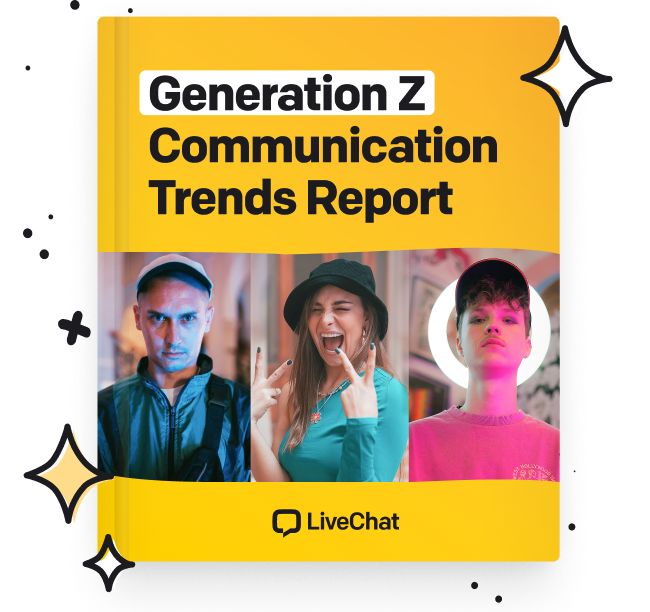Showing top 0 results 0 results found
Showing top 0 results 0 results found

A couple of days ago I was buying some groceries in a quite crowded store. There were two cashiers and I was observing them because I was curious about the way they work.
“My” cashier was very serious. She was very polite, but she did not smile and I had this impression that she would like to be at home already.
The second cashier behaved differently. She was smiling and laughing loud, so at first, I thought that she’s talking with her friends. But when customers left the shop, I’ve noticed that she smiled at another customer, she immediately started talking to them and laughed again.
I looked at her, I looked at “my” cashier, looked at her once again… And I envied all the people in the second queue that they will be given some of her fantastic energy. Two employees, two different attitudes.
And then I said to myself that it’s the right moment to draw attention to the importance of the Fish! Philosophy.
Fish! Philosophy describes four elements of extraordinary customer service and helps to implement them in a workplace. It also teaches us that we don’t have to be dead serious about our job and we should look for fun and amusement every time it doesn’t interfere with our work.
What is Fish! Philosophy?
Fish! Philosophy was created in 1997 by John Christensen. He visited Pike Place Fish Market in Seattle and was amazed by the way fish sellers were having fun during their work.
To his surprise, they were laughing, shouting and tossing trout and salmon through the air, just behind their customer’s heads!
They were also giving their customers a lot of attention, making sure that their visit would be enjoyable.
An interesting thing about the fish sellers job was that it was exhausting and repetitive, and yet sellers were able to find joy in their work and sell a lot of fish.
John Christensen noticed that there are four core practices everybody could implement in their work and life.
He called it the Fish! Philosophy.
#1: Choose Your Attitude
A positive attitude is our choice. We can hate our job and dislike every hour we have to spend there, or we can accept it with all our responsibilities and try to find joy in working there.
As long as you cannot control the external events, you still can control your happiness. So, instead of working and not feeling happy about it, you can try to choose the positive attitude and find pleasure in your job.
#2: Be There
This advice may sound weird as when you’re at work, you’re there, right? But this advice is about mental presence, it’s about being focused on the present moment. Focus on the task you’re doing, focus on a person you’re trying to help, don’t fly away with your thoughts from where you are now.
#3: Make Their Day
If you do something special for your customers or coworkers, you can be sure that the next time someone will do something good for you. It’s not only about making an exceptional customer experience, it’s also making your workplace a better place to be.
#4: Play
This practice might sound controversial (especially for bosses) but work can also be a source of fun. As long as you find the pleasure in coming to your work, you’ll have more enthusiasm, energy and you will be keener to do your best.

Fish! Philosophy Criticism
One reason why Fish! Philosophy is criticized is because, as its opponents like to emphasize, it’s opiate of the powerless. They say that while powerful people control events, the rest of us can only control our attitudes.
Other words, they accuse Fish! of being a risky idea.
Imagine this situation: you’re poorly paid, your boss harasses you and you have to work 50 hours a week.
But the company is paying for several pieces of training where you’re taught the Fish! Philosophy: that the happiness is the state of mind. You are taught that, as you obviously cannot do anything about your job, you should accept it and seek joy in it instead of changing it.
This is how Kevin Carson, the author of “Fish! Philosophy: Opiate of the Powerless” described it:
Fish!, by sleight of hand, conceals the elephant in the living room: we're not all equally powerless in the face of circumstances. Some people make circumstances, and some people adjust to circumstances.
But should we demonize a philosophy that can help us to be happier at work? Is it really that dangerous?
If someone has a really bad job and has an opportunity to change it, will any philosophy be able to keep them in their position?
Burnout syndrome can reach you even if you’re a CEO of a successful company. You can wake up and think how much you’d like to be in a completely different place - regardless of how much money you earn.
In such case applying Fish! to a work routine can be refreshing.
It can help you to shift from the “I’m tired of this job” attitude to “I’m going to work with pleasure.” And once you’re happy with your workplace and people you’re working with, your motivation and job satisfaction will go up!
Fish! in customer service
The fishmongers' team from Seattle’s Pike Place Fish Market is an example of how you can create a culture and workplace that encourages people to flourish and increase productivity.
It also encourages us to choose the positive attitude that’s so important in customer service. Working as a representative is hard work on which you have no influence on what is going to happen. One day you can come across rude customers, sometimes you will have very difficult cases you’ll have to deal with.
The bottom line is to consciously choose the attitude that will make you happier. Try to find joy in your work, befriend your colleagues, laugh and try to have some fun - this is what Fish! is about. But you can also take your "fish training" to a higher level: this philosophy inspires to look for joy in daily events and can make you a happier person in the end.
The good thing about this philosophy is that it’s not only about engaging people and creating positive change in their workplaces, it is also about our daily lives every time we have to deal with something we dislike.
Then, you’ll be the one of those who say:
I never did a day’s work in my life. It was all fun.
Get a glimpse into the future of business communication with digital natives.
Get the FREE report







Comments